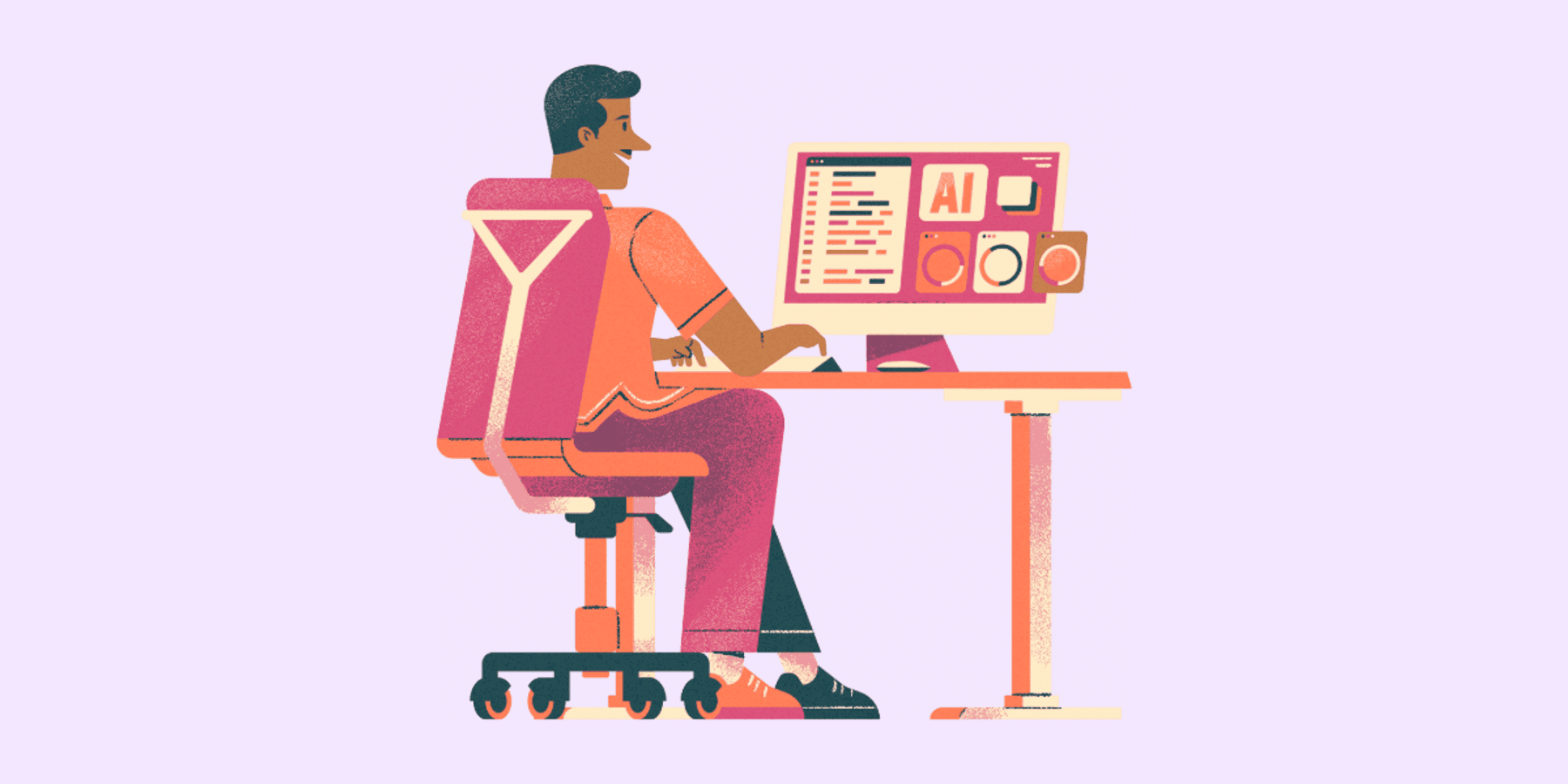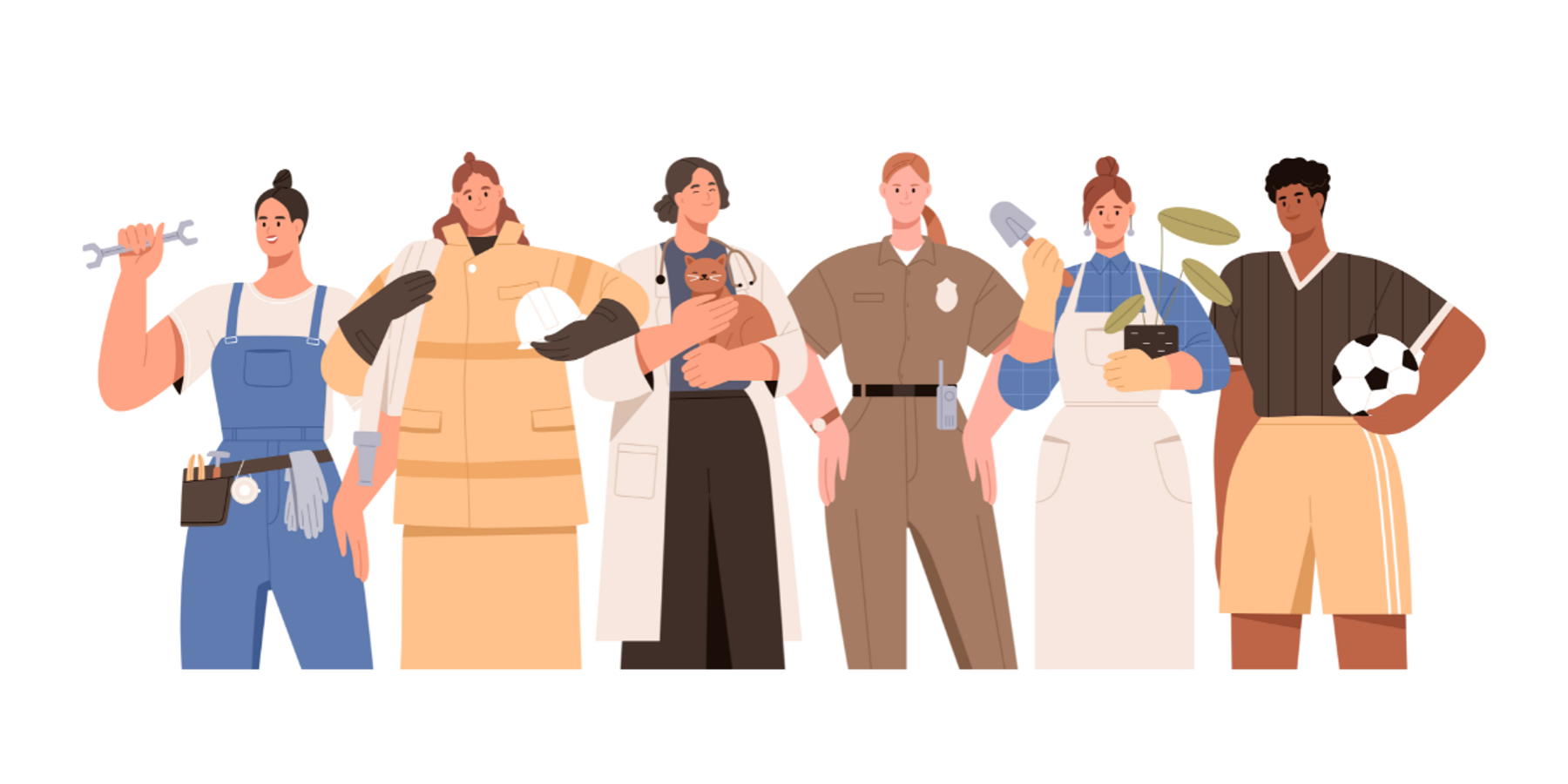Let’s be honest. Getting a job interview right now is no small feat.
If you’ve landed an interview, that means that you’ve made it past the bots, the auto-rejections, and the mountain of applicants. Maybe you even applied to a role that had 500+ other hopefuls clicking “apply” and that’s already a win. A big one.
But now? The pressure’s on. You need to show up, stand out, and somehow convince a stranger (or three) that you’re the right person for the job. Oh, and do it all while pretending your heart isn’t pounding like you just ran a 5k with no prep.
Here’s the thing: interviews aren’t really designed to make you comfortable, but that doesn’t mean you have to show up feeling like a bundle of nerves. Confidence isn’t about having all the answers or “crushing it.” It’s about being prepared, present, and clear on what you bring to the table.
Keep reading for practical, real-world ways to show confidence in an interview, even if you’re feeling anything but ready. We’ll break down how to prepare, how to present yourself, how to recover when your brain forgets what your mouth is doing, and how to leave a lasting (good) impression.
Understand what confidence actually looks like
To be clear, confidence in an interview does not mean walking in like you own the place. It also doesn’t mean talking nonstop, or pretending you’re the smartest person in the room. Real confidence is quieter than that. It looks like showing up prepared, speaking clearly, making eye contact, and taking a breath before answering a tough question.
Believe it or not, interviewers aren’t expecting a perfectly polished super-human when they interview you. They’re looking for someone who understands the role, has done their homework, and can talk about their experience in a way that makes sense.
Confidence shows up in a number of simple ways, like:
- Being comfortable saying “I don’t know” when you’re unsure, and following up with, “Here’s how I’d find out.”
- Sharing your wins without sounding like you’re reading your LinkedIn out loud.
- Listening as much as you speak.
You don’t need to fake a big personality if that’s not your style. You just need to be steady, thoughtful, and ready to tell your story. The goal isn’t to be perfect, it’s to be someone the interviewer can picture on their team.
10 practical tips to help you feel (and sound) more confident in an interview
Now that we’ve covered what confidence looks like in an interview, let’s focus on how to build it. Below are 10 practical tips to help you show up prepared and self-assured, even if you’re feeling a bit nervous beneath the surface. You don’t need to apply every suggestion, but using a few of these strategies can make a noticeable difference.
Tip 1: Practice your key stories out loud
You don’t need to memorize a script, but you do need to get comfortable talking about your work. Practice three to five examples that show off your skills (things like leading a project, solving a tough problem, or learning something fast). Use the STAR method (Situation, Task, Action, Result) to keep your answers clear.
Read this next: How to use the STAR method to ace your next interview
Tip 2: Learn the job description (it’s your cheat sheet!)
We recommend going old fashioned and printing it out. Highlight the areas where your expertise aligns and make notes next to each bullet point with a story, example, or skill that matches. This will help you speak directly to what the interviewer is looking for — using their own words — which will help you feel more prepared and sound more confident.
Tip 3: Create a one-minute “about me” pitch
You will inevitably be asked some version of the dreaded: “Tell me about yourself” question. Have a clear, simple answer ready that sums up who you are, what you do, and why you’re excited about this role. You don’t need to list your entire résumé, but rather give them a quick highlight reel. You can include some personal facts, but keep it professionally focused.
Read this next: How to sell yourself in an interview
Tip 4: Set the stage before the interview starts
If it’s virtual, check your lighting, camera angle, and background ahead of time. If it’s in-person, pick your outfit the night before and plan your route. Running late or scrambling with tech is a fast track to feeling flustered.
Tip 5: Use your nerves instead of fighting them
Being nervous is natural. It simply means that you care. Channel that energy into deep breaths and strong posture. Sit up straight, plant your feet, and let your body help send the “I got this” signal to your brain.
Tip 6: Slow. Down.
When we’re nervous, we tend to rush. Speak at a slower pace than you think is necessary, and don’t be afraid to pause before you answer a question. It shows you’re thoughtful and makes you sound more confident.
Tip 7: Show your impact, not just your tasks
Anyone can list responsibilities. What interviewers really want is to know the results of your work. Did you save time? Improve a process? Boost sales? Share outcomes with numbers whenever you can.
Tip 8: Ask a smart question (or two)
The interview process is as much about you as it is about the company. Come to your interview prepared with one to three thoughtful questions about the team, the role, or how success is measured. It shows you’re not just job-hunting, you’re looking for a good match.
Read this next: The best 10 questions to ask an interviewer
Tip 9: Prep a few phrases for when you blank out
It’s normal to get caught up and forget some of the key points you prepared for the interview. Have a few go-to lines like, “That’s a great question, let me think about that for a second,” or “Let me give you an example from a recent project.” These phrases buy you time and keep you in control without relying on ‘um’.
Tip 10: End strong and follow up
At the end of the interview, thank the interviewer(s) for their time. Then, send a short, specific thank-you note that mentions something from your conversation. It’s a small gesture that leaves a lasting impression.
A word of encouragement
Interviews are rarely comfortable. Even the most seasoned professionals get shaky hands or blank out from time to time. But confidence isn’t about eliminating nerves, it’s about learning how to work with them.
By preparing well, practicing your stories, and showing up with clarity about what you bring to the table, you give yourself the best chance to be heard and remembered — not because you performed perfectly, but because you were present, prepared, and real.
So the next time you land an interview, remember: that’s already a sign you’re doing something right. Trust your experience, lead with honesty, and when in doubt, take a breath and keep going.
You’ve got this!
Want more guidance? Watch How to Exude Confidence During an Interview to learn how to bring your authentic self to an interview, communicate your brilliance without sounding conceited, and understand how preparation and self-care shape your success.




